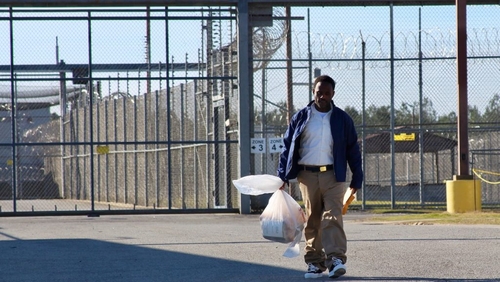 In the past quarter-century, fewer than 500 death row inmates have been executed, while more than 2,000 have had their sentences vacated. |
THE ENEMIES of capital punishment often raise the specter of a fallible criminal justice system sending an innocent man to the electric chair. Many of those who make this argument do so in bad faith, for they oppose the death penalty even when a murderer's guilt is undoubted. Which of them, for instance, favored the execution of Karla Faye Tucker, who gleefully butchered her victims with a pickaxe?
Of course it is conceivable that all the safeguards built into the law could fail, and that someone not guilty could be put to death. There is no evidence that such a thing has happened in modern times, and the odds against it are dizzyingly steep. Still, as with any human endeavor, there is always some level of risk. Airplanes crash. Patients die under the knife. But only a crank would propose that we abolish air travel or do away with surgery for fear of committing a fatal error. It is equally irrational to refuse to bring murderers to justice because of the remote and speculative possibility of executing an innocent defendant.
To ensure that such a tragedy never occurs, capital-murder statutes go to extreme lengths to err on the side of caution. In Massachusetts, which still lacks the death penalty, Governor Paul Cellucci has proposed a bill that would not permit an execution unless:
(a) the jury found that, in addition to the murder itself, one of 12 aggravating circumstances had been proved beyond a reasonable doubt;
(b) all mitigating evidence was considered;
(c) a second jury voted unanimously for the death sentence;
(d) the defendant was represented by two experienced attorneys, at least one of whom had demonstrable proficiency in capital cases;
(e) the conviction and the sentence were both upheld on appeal to the state supreme court, which would have wide discretion to overturn a lower court's ruling; and
(f) the conviction was reviewed by the governor, who has the power to recommend commutation.
No aspect of US criminal law is as relentless and obsessive as the search for grounds to set aside a death sentence. In the past quarter-century, fewer than 500 death row inmates have been executed, while more than 2,000 have had their sentences vacated. A prisoner under sentence of death is much less likely to die than to have his conviction overturned (often on a technicality), his sentence commuted, a new trial ordered, or a pardon granted. Vast amounts of time, money, and judicial attention are spent on efforts to save death row inmates.
In short, of all the punishments meted out to American criminals, none is less arbitrary and capricious than the death penalty.
Yet death penalty opponents illogically cite this very stringency — the fact that many death row inmates are spared — as "proof" that states with capital punishment stand a good chance of executing innocent victims. It is like claiming that since poultry inspectors reject tainted birds before they reach the market, consumers can expect to find spoiled chicken on their grocer's shelves.
At Northwestern University two weeks ago, an antideath penalty rally posing as a scholarly conference showcased 29 former death row inmates. One by one, they walked to a podium and introduced themselves as innocent victims who had been wrongly condemned. "My name is John Henry Knapp," said one. "Had the state of Arizona gotten its way, I would be dead today." Then he, like the others, placed a sunflower in a crystal vase.
"I dare anyone to look at those flowers that they wanted to extinguish," said Lawrence Marshall, the Northwestern law professor who organized the event, "and tell us that their death penalty works."
This is sheer sophistry. Had the 29 been killed, their deaths would have cast doubt on the reliability of the death penalty. But they weren't killed, they were released. Far from failing them, the system saved their lives.
The sour truth is that the foes of capital punishment don't really care about rescuing the innocent. If they did, they would ignore the death penalty and focus instead on the early release of criminals from prison. For that is the single greatest cause of homicide in America.
In a 1995 study, the Department of Justice (using 1991 data) found that 45 percent of all state prisoners had committed their most recent crime while out on probation or parole. While "under supervision" in the community (i.e., free), they committed 13,200 murders. Half their victims were strangers.
Other studies reach similar conclusions. In the nation's 75 largest counties, more than one-third of all murders in 1990 were committed by criminals on probation, parole, or pretrial release. Of the 1,411 murderers convicted in Virginia between 1990 and 1993, one-third — 474 — were on some form of early release.
An activist genuinely alarmed about the loss of life in this country would throw himself into a crusade to eliminate probation and parole.
But saving innocents isn't what motivates Marshall and his antideath penalty allies. No — their goal is saving the guilty. A few dozen murderers are put to death each year in the United States. If Marshall & Co. had their way, each of those murderers would live to a ripe old age. And that, in a nutshell, is what the death penalty abolitionists are all about: long life for killers.
(Jeff Jacoby is a columnist for The Boston Globe).
-- ## --
Follow Jeff Jacoby on X (aka Twitter).
Discuss his columns on Facebook.
Want to read more? Sign up for "Arguable," Jeff Jacoby's free weekly email newsletter.

